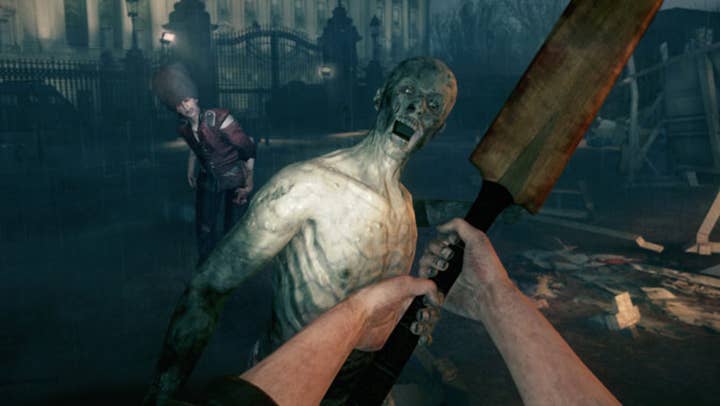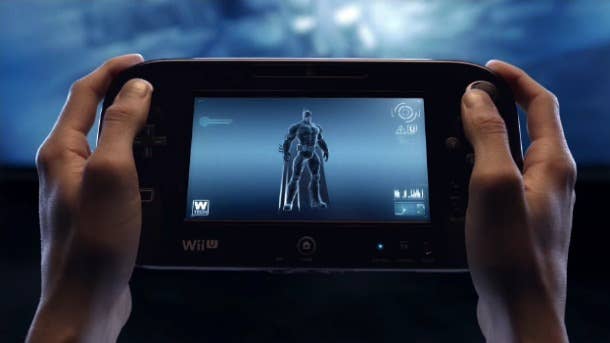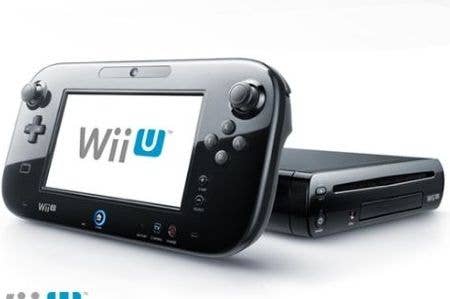Roundtable: Will Wii U Get The 3rd Party Support It Needs?
Our staff weighs in on the fate of Nintendo's upcoming Wii U launch
Nintendo's launch of the Wii U this holiday season will be one of the most interesting hardware launches to watch in the venerable company's long history. Both the economy and the games industry landscape have changed tremendously since the Wii was launched back in 2006. Consumers have less money to spend (or just don't want to spend as much) and there are now more options than ever, with the rise of smartphones, tablets, social and free-to-play. On top of that, price cuts and/or bundles are almost certainly on the way for Xbox 360 and PS3.
Nintendo in some ways caught lightning in a bottle with the Wii, and as the saying goes, lightning never strikes twice in the same place. Even the top brass at the company would fully admit that repeating the success of the Wii is a daunting task, to say the least.
One of the keys for the Wii U will be to engender strong third-party support - a feat that has always been difficult for Nintendo platforms, where first-party dominates sales and consumers' interest. While there are plenty of Wii U announcements to come still, the third-party software shown thus far has mostly failed to impress. With Batman: Arkham City as the third-party highlight for Nintendo at E3, and more recently, EA Sports confirming that the Wii U version of Madden 13 will be missing key features that 360/PS3 versions have (including physics), it's hard to be encouraged.
Moreover, just last week, Warner Bros. announced Game Party Champions for Wii U, an assortment of sports or arcade-style games. Is this actually the Wii U's destiny... either 360/ PS3 ports or casual fare of the sort the Wii was flooded with? Is this how third parties truly see the Wii U? And if so, how can this be anything but terrible news for the Wii U's prospects in a challenging market?
GamesIndustry International's writers share their thoughts in the roundtable below.
Dan Pearson
I think it's probably far too early to make a judgement call on this. If there's one thing Nintendo does consistently, it's to surprise those who've spelled out its doom. Having said that, software is obviously key to success, but I'm not sure that third-party is going to be what attracts buyers.
"What matters now is whether all of those millions of households with a Wii festering in a cupboard under the stairs will fall for it again"
Dan Pearson
Until Nintendo started hitting the 3DS with its incredibly valuable first-party IP, it was going nowhere. Labelled as overpriced and based on a gimmick, the handheld was underselling enormously. One Zelda, a couple of Marios and the odd Yoshi later and it's hit its stride magnificently, powering ahead of competition across the globe.
So yes, we'll see more of the same from Nintendo - they'll likely never stop iterating their solid-gold franchises - but they will sell, and they will sell systems. Games like Assassin's Creed III and Madden might sell a few, but I doubt anyone who really wants to get them early will wait for the Wii U version. Even more so for Call of Duty or Battlefield.
Third-party minigame collections and dance or exercise titles may review poorly and be labelled as shovelware, but they populate the system with titles you can't get elsewhere, playable in ways they wouldn't be on other systems. What matters now is whether all of those millions of households with a Wii festering in a cupboard under the stairs will fall for it again.
Steve Peterson
Yes, it certainly looks like the third-party support for the Wii U is weak, consisting so far mostly of ports and casual/party games (the interesting ZombiU and gorgeous Pikmin 3 notwithstanding). We shouldn't really be surprised; Nintendo has traditionally not worked very hard at lining up third-party support for their consoles because publishers were eager to put titles out for Nintendo's industry-leading hardware. By the time the Wii launched, Nintendo was no longer the console leader, and publishers mostly gave it perfunctory support.

Of course, the Wii rapidly became a huge hit, owing to its low price (half that of the Xbox 360 or the PS3) and innovative, easy-to-use motion controller. Those two factors propelled it to the #1 console position, and only then did publishers push hard to put out titles for it. Fast-forward to 2012, and once again publishers aren't paying much attention to Nintendo's new console: The Wii U. Now publishers have many other places to put development resources, including DLC and mobile, not to mention other next-gen consoles on the horizon. It's tough to convince them to put resources into new hardware that so far hasn't generated wild enthusiasm... not that Nintendo seems to be trying very hard to get third parties to sign on. Only one of the big multiplatform titles for the holiday (Assassin's Creed 3) is on Wii U? Did Nintendo even pick up the phone and call Activision or EA or Take-Two? The bottom line is that third-party support will strengthen only if Nintendo demonstrates strong sales of the Wii U.
The Wii U's success, like that of the Wii, won't really depend initially on third-party support anyway. What really matters is the price point Nintendo chooses, and the strength of its own software lineup. At launch Nintendo may not have a very strong lineup of titles, and its price for the Wii U may be too high. As we saw with the 3DS, though, Nintendo can recover from both of those problems in six months or so if they have some strong titles (hello, Zelda? A truly original Mario title?) and reach a price more in line with what consumers are willing to spend.
If they have strong sales then, third-party support will follow... though there may be fewer titles than in the past for any new console, given the state of the industry. Maybe by holiday 2013 Nintendo will have the Wii U in fighting trim, with a strong software lineup and a price half that of the next-gen consoles. I hope so...
David Radd
The way the Wii U will perform is an enigma for much of the industry, much like the Wii was. Many expected great things for the Wii, but the system rocketed past the most optimistic projections of fanboys, pundits and even Nintendo itself in how well it would sell. This early success was built on the strength of Nintendo's first-party offerings and third-party offerings that tended towards the casual and mainstream.
2012 is a whole different industry. Developers looking to the "mainstream" now see consoles as a secondary concern - they're looking at the smartphones in people's pockets or the laptops they have for utility. As for AAA console developers, it's been established that retail has become the realm of the biggest of hits and almost everything else loses money. The "middle class" of developers looks to online options, and that hasn't exactly been Nintendo's specialty.
"Until the Wii U has hit the market and shown its stuff, the Nintendo range of titles will more than fill the gap for the average gamer"
Rachel Weber
That's not a good sign when the Wii U will no doubt be trumped in hardware power by Microsoft's next Xbox and Sony's next PlayStation. What we're left with is the tablet controller (or "GamePad" as Nintendo likes to call it) which I've best heard classified as a solution in search of a problem. Many gamers and developers are wary of the device as a gimmick that won't add significantly to a game experience; at the same time, it lacks the simple appeal of the Wii Remote that was simplistic and appealing enough for any member of the family to pick up. Even the NintendoLand games (which Nintendo wants to assert as the Wii U's Wii Sports) lack the simple, elemental appeal of sports games recreated in a rudimentary form.
In synopsis, I expect third-party support for the Wii U to be about on par with the Wii, which is to say it won't be very good. There will be certain exceptions (ZombiU and Rayman Legends look to be a couple of early examples) but otherwise I'd expect the good-faith efforts to be drowned out by the shovelware. And getting the same mainstream audience to pony up again for another system in the same numbers will be difficult, though I expect it to sell well early on. I hope things go well and the system does better than I and others expect; if it doesn't, it is dark portent for those who are fans of console games in general.
Rachel Weber
What an ungrateful bunch of babies we are. The Wii U isn't even out yet and already we're throwing our 3DS XL's out of the pram and calling its games unimpressive.
Yes there are a lot of ports; it's a new machine that people want a presence on, and fast, but there are also signs of real ingenuity. Ubisoft's ZombiU looked pretty damn cool from where I was sitting, and LEGO City Undercover suggested developers are coming up with stuff that manages to be family friendly and original at the same time. You can't really blame the big third-party studios for being a little careful with their money. Some people are cutting back on holidays - they're cutting back on risky development projects.
"Third-party titles shown at E3 had the same problems some early DS games had: features crammed in to justify the system"
Mike Williams
No one has money to throw around at the moment, on any of the platforms, and until the Wii U has hit the market and shown its stuff, the Nintendo range of titles will more than fill the gap for the average gamer. Pikmin or death!
Also, what's wrong with a machine that is aimed at the more casual end of the market? It didn't do the Wii any harm. Members of my family who didn't even know how to turn on their PC without help bought a Wii. And their friends bought a Wii. And then their friends did. All because it was a machine they had played with at a party. Do you know how often they moaned about graphics? I'll give you a clue - NEVER. To them the Wii U will be just another household appliance to upgrade to next time they're in John Lewis.
To start calling it "terrible news" is a mix of snobbery and naysaying, and not much else. We can't pass any judgements until the Wii U is actually released at Christmas, and by then I imagine we'll all be too busy playing Project P-100 with our grandmas to remember.
Mike Williams
The current problem with the Wii U is Nintendo's message for the console is muddled. What's the reason to consumers to upgrade to the new system? For PlayStation 3 and Xbox 360 owners, will the promise of games they already have access to with additional touchscreen controls be enough? For casual owners of the original Wii, will HD Nintendo titles be enticing?
Then there's the issue with third-party Wii U titles. Nintendo's first-party efforts always make the hardware look good, but the third-party titles shown at E3 had the same problems some early DS games had: features crammed in to justify the system. Batman: Arkham City is just one example with its gimmicky Batarang control method using the Wii U tablet. The mode ends up detracting from the game more than it helps.

Nintendo needs to hit the right price point with the Wii U. Consumers need to be told clearly that the Wii U is a standalone system, not an additional controller for the existing Wii. Marketing needs to show off the best of the system, probably hitting hard on the group aspects and asymmetric play. Nintendo needs to make sure that the system's strengths dovetail with the development efforts of its third-party partners.
I doubt Nintendo can reach the same success they did the Wii, but at least the Wii U has the potential to be a solid contender in the next console cycle. With the rise of mobile gaming and the next generation coming from Sony and Microsoft, Nintendo will only have one chance to get it right. Fingers crossed.









